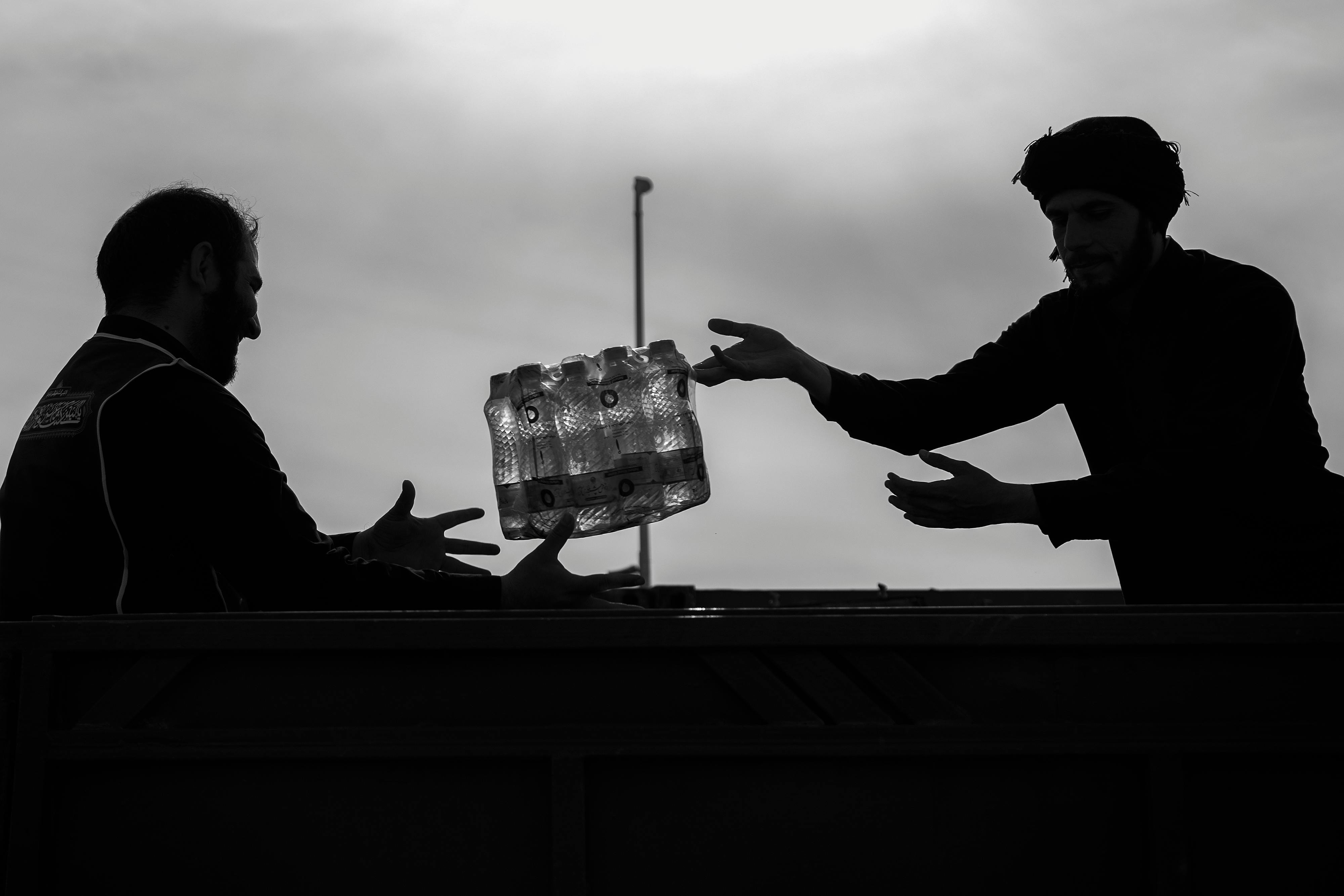Distillation is a process used to separate and purify liquids. It is widely used in everyday life for a variety of applications, from producing essential oils to purifying drinking water. Distillation works by boiling the liquid, causing it to vaporize, and then condensing it back into liquid form. This process leaves behind any impurities that were present in the original liquid, leaving a more concentrated and pure product. Distillation has been used for thousands of years and is still an important tool in many industries today.Distillation is a process of separating the components or substances from a liquid mixture by using selective boiling and condensation. Distillation allows the separation of a desired component from liquids, such as water and other solvents. This process works by boiling the liquid mixture until it vaporizes, and then condensing the vapor to separate out the desired component. The temperature at which each component vaporizes is different, allowing for separation.
Uses of Distillation in Everyday Life
Distillation is a process used to separate the components of a mixture based on their boiling points. It is widely used across many industries and can also be found in everyday life. Distillation has a variety of uses, from purifying water for drinking to manufacturing essential oils for aromatherapy. Here are some common applications of distillation in everyday life:
Water Purification: One of the most important uses of distillation is for water purification. This process removes contaminants like bacteria, viruses, and parasites from water, turning it into safe drinking water. Distillation can also remove minerals and other impurities that can affect the taste and smell of water.
Production of Essential Oils: Essential oils are often used in aromatherapy and cosmetics due to their pleasant scents and beneficial properties. These oils are extracted through a process called steam distillation, which uses heat to separate the oil molecules from other compounds in the plant material.
Alcohol Production: Alcohol production requires distilling a fermented mixture to increase its alcohol content. This process separates the
Distillation
Distillation is a process used to separate a mixture of liquids based on differences in their boiling points. It is a common technique used in many industries, such as oil and gas, to separate different components of a liquid mixture. The process works by heating the mixture until the components with the highest boiling point vaporize and then cooling them until they condense back into their liquid form. This condensed liquid can then be collected and separated from the other components of the mixture. The process can be repeated multiple times to further purify the collected liquid.
How Does Distillation Work?
Distillation works by taking advantage of the difference in boiling points between different components of a liquid mixture. When heat is applied to the mixture, the components with higher boiling points will vaporize first, leaving behind those components with lower boiling points. The vapors are then cooled and condensed back into their liquid form and collected for further processing. This process can be repeated multiple times to further refine and purify the collected liquids.
The distillation process can also be used to separate different substances that have similar boiling points but different densities or molecular weights
Distillation In Home Purification Systems
Distillation is one of the most effective methods for purifying water in home purification systems. It is a process used to remove harmful impurities and contaminants from drinking water. The process involves boiling the water and collecting the condensed steam, which is then cooled and collected in a separate container. This steam is free of impurities, as they are left behind when the original water boils away. This method has been used for centuries to provide clean drinking water and is still widely used today.
The distillation process starts with heating the water until it reaches its boiling point. As the water boils, it releases steam that rises and condenses on the sides of a cooling chamber or condenser. The condensed steam is then collected in a separate container, leaving any impurities behind. The resulting liquid is free from harmful substances such as chlorine, lead, metals, pesticides, bacteria and other contaminants that may be present in untreated water sources.
This method of purification also works well for removing salt from seawater or other saline sources. The salt remains behind while the purer form of liquid is collected in a separate
Distillation In Food And Beverage Production
Distillation is an important process in the food and beverage production industry. It is used to separate and purify a variety of liquid mixtures, including alcoholic beverages, essential oils, vinegar, and other products. Distillation involves boiling the mixture in order to separate the components into their respective parts. The vaporized components are then cooled and condensed back into liquid form. This process can be used to produce a variety of different products, such as beer, wine, spirits, essential oils, flavored syrups, and more.
The distillation process is divided into two main stages: the first stage is called maceration or infusion; this involves steeping the raw material (such as fruits or herbs) in hot water to extract their flavor and aroma compounds. The second stage is distillation itself; this involves heating the macerated mixture in order to vaporize its constituents and collect them separately.
In the food and beverage production industry, distillation is used to create a variety of products. For example, vodka is produced by distilling a fermented grain mash such as wheat

Distillation In Pharmaceutical Manufacturing
Distillation is a common process used in pharmaceutical manufacturing for the purification of liquids and solids. It is a physical separation process that utilizes the differences in volatility between different components of a mixture to separate them. Distillation can be used to separate and purify liquids, such as ethanol, acetone, and other solvents, as well as solid compounds such as cholesterol. The distillation process involves heating the material to vaporize its components, then cooling the vapor back into liquid form. The separated liquid components are then collected and purified.
The distillation process can be used to purify both organic and inorganic compounds, allowing manufacturers to produce products with higher quality standards. Distillation also ensures that each batch of product meets the desired purity level. This is especially important in pharmaceutical manufacturing where the safety and efficacy of the product depend on its purity level.
In addition to providing a means for purifying materials, distillation can also be used to separate components of a mixture that are not miscible with each other. This includes separating out water from a solution or separating out volatile organ
Distillation In Automotive Industry
Distillation is an important process in the automotive industry. It is used to separate petrol, diesel and other liquid fuels from crude oil. This process is also used to create specialty oils, such as motor oil and transmission fluid. It is a complex process that involves the separation of different components of a liquid mixture based on their boiling points. Distillation is an energy intensive process that requires large amounts of heat and pressure to be applied to the mixture before it can be separated into its individual components.
The primary purpose of distillation in the automotive industry is to separate crude oil into its various components so that each can be used for specific purposes. For example, gasoline is distilled from crude oil because it requires a higher boiling point than diesel or other fuels. Similarly, lubricating oils are distilled from crude because they require higher boiling points than gas or diesel fuel. Distillation also allows for the creation of specialty oils, such as motor and transmission fluids, which require even higher boiling points than regular fuel or lubricants.
Distillation plays a major role in the automotive industry because it provides a reliable and efficient way to create high-quality products from crude oil
The Role of Distillation in Oil Refining Processes
Distillation is an essential part of the oil refining process. It is used to separate crude oil into its components, such as gasoline, diesel, and other petroleum products. Distillation is a process that uses heat to separate the components of a mixture by their boiling points. The boiling point of each component differs, so they can be separated into different fractions. This helps to create a higher-quality product that can be used for a variety of purposes.
The distillation process begins with the raw crude oil being heated up in a distillation column. As it heats up, the mixture begins to boil and the individual components vaporize at different temperatures. As the vapor rises through the column, it meets trays that are designed to cool and condense it into liquid form. The condensate then falls back down into the column and is collected in various trays for further processing or storage.
The distillation process is an important step in refining crude oil into usable products. It separates out impurities that may have been present in the original crude oil and also

Conclusion
Distillation is an essential process used in everyday life and it is utilized to purify, separate, and concentrate liquids. Distillation can be used in a variety of industries including food, beverage, fuel and petrochemical industry, and medicine. The process is also extensively used in water treatment to provide clean drinking water. With advances in technology, distillation processes can now be conducted more efficiently with greater precision and accuracy. Distillation is a reliable method for separating components of mixtures which can be used in many different applications from medical treatments to producing clean drinking water.
Overall, distillation has become an integral part of our lives as it helps us obtain pure liquids from mixtures. It allows us to separate and concentrate liquids more accurately than ever before. Its widespread use across different industries further highlights its importance for providing us with clean water, fuel and medicines that meet the highest standards of quality.

